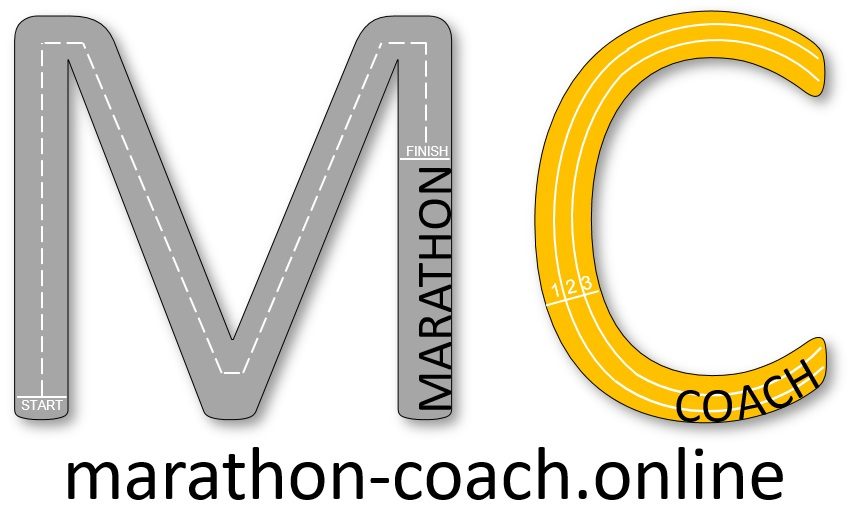Training logbook
All runners should have a running diary. Our modern watch record many data and all is uploaded automatically to the cloud. It is great to have all these data, but is this good enough?
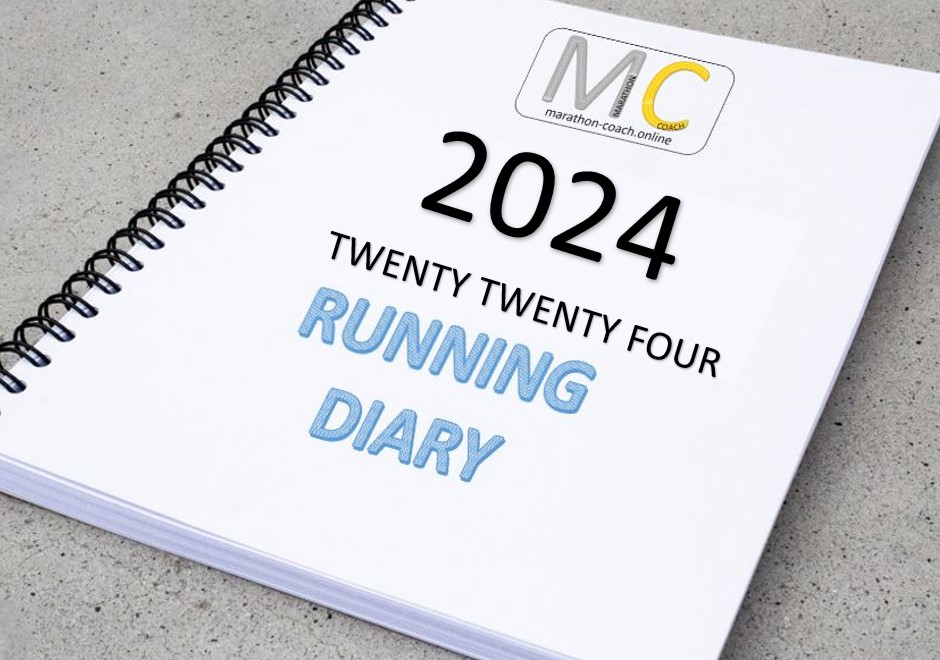
What have you done with these data? Did you analyzed the data from last speed session? You will need a data scientist doctorate to be able to review all these details: pace, mileage, heart rate, weight, temperature, altitude, time, strength, cadence, stride length, vertical oscillation, ground contact time… If you multiply these data per hundreds of runs every year, it is not possible to use it all.
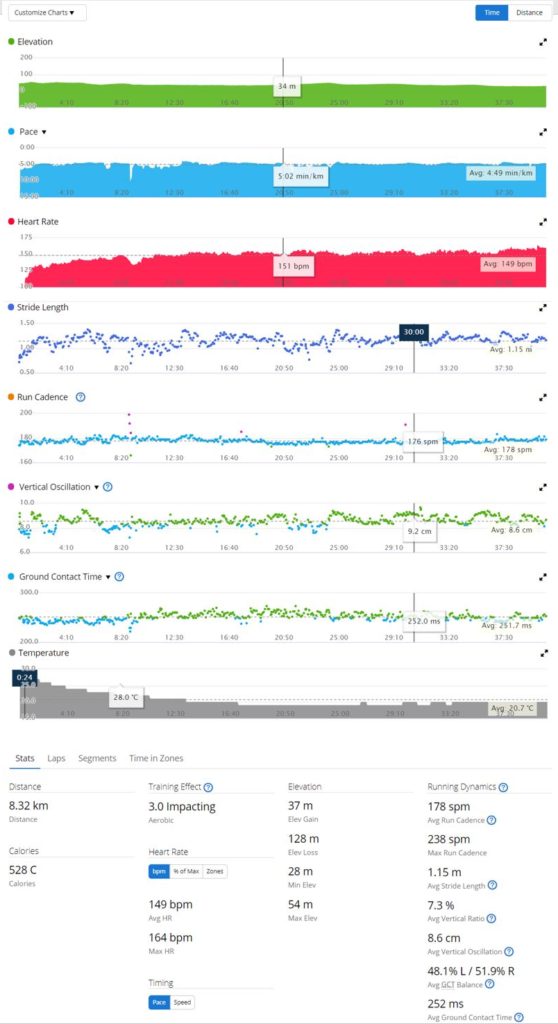
The famous quote, just give us the reason to have a training log:
“If you can’t measure it, you can’t improve it”
The most important, is to make it the more simple in order to use it daily / weekly. It is why a paper diary is the simplest way to keep using the logbook past January. Just spend few minutes between the cool-down / stretch and the shower to write the details of the session.
There are parameters that the watch is not able to know:
How do you feel today?
Was the path muddy?
Was it windy?
I had lunch just before the run.
The work meeting lasted too long and I missed the warm-up.
I am in a hurry and will need to pick up the kids…
All these details will influence the run. Indicate in few words what was special with this session.
Benefits of the training logbook
There are many benefits to keep a running diary. The main benefit is to keep log of the training sessions, but not only.
It is a general review of your general fitness, a scan of your body, how you feel physically and mentally.
Logbook gives you a lot of statistics like the weekly mileage, but as well the shoe mileages, pace of the sessions, etc.
The log is a good way to write down what is moving you, what is your goal and keep you accountable for the results.
Running agenda can give you patterns as well. “I always run slow on Mondays.” “I missed the speed session because of my periods.” “On Thursdays, I need to pick-up the kids”. It helps you to program better your weeks / months.
It bring some structure to you training plan.
There is no magic, progress are slow and need many hours of dedication to run a marathon. You can see the progress by looking at the pace you were running 6 months ago to keep you motivated.
Marathons 2024
You can plan your marathon 2024, by planning one in Spring and one in Autumn. I suggest a 12 weeks training plan, with a half marathon after 7 weeks. For more advance athletes, the training plan can be condensed to 8 weeks.
The most important marathons are linked togeter – Abbott World Marathon Majors:
- Tokyo
- Boston
- London
- Berlin
- Chicago
- New-York
Potential future marathon to join : Sydney
But you can find marathons that could fit your timing, place… I tried to give a view of the main marathons :

Half-marathons 2024
Similar to the marathons, the Super half series, is a group of 6 half marathons, that need to be completed within 60 months :
- Lisbon
- Berlin
- Prague
- Copenhagen
- Cardiff
- Valencia
But you can find half-marathons that could fit your timing, place… I tried to give a view of the main half-marathons :

I suggest a 6 weeks training plan to prepare for half-marathons.
Format
There are many format for the running diary, even you can buy a diary with a page per day / week / month with enough space to write down all details. The log is a quick overview of the training you have been doing. Many hours / days of hard work. You can go over the log after a race to see how the fitness improved to reach your goal.
Running miles
It is one of the most important part of the log. It looks at your training miles. Usually, we sum the weekly mileage. We ensure that it is constant. If we want to increase the mileage, we need to monitor the increase to keep it progressive. If you usually run 20 miles per week, running a 100 miles week is the fastest way to get injured. Roughly, we estimate an increase of less than 10% per week.
Shoes
You should keep track of your shoes mileage too. I suggest having 2/3 pairs of shoes in parallel. They will last longer and you can leave them dry naturally between two runs by alternating.
Sleep
The quality of sleep is important. It is easier to monitor the sleep in number of hours. If you have a bad night sleep, and have a speed session the following day, your performance may be impacted. As well the recovery after the session. Few details about the sleep can be important. For example, you can record the number of sleep hours, nap details, quality of the sleep from 1 to 10…
Rest Heart rate
Monitoring the rest heart rate is the first thing athletes are doing daily. Still in bed, before standing up, check you rest heart rate daily. A jump by 10 beats per minute will give you a good indication that you need to rest. The jump can be up or even down. It is really an important data to follow.
Weather
The weather will affect directly your run. If you have a session or a race with headwind, very cold or hot temperature will have a great impact on your pace.
Sessions
It is the most important details. Give a short detail of the session. There is no need to write a full paragraph but a short summary of the session. For example:
– 12 x 400m in 65” recovery floating 200m in 50”
– Threshold 8km in 28’36”
– Long run 2h / 28km (5km in 18” & 3km in 10”)
Injury
Unfortunately, most of fifty percent of the runners will have an injury in 2021. It is important to keep track of the injury, and be able to see your training details the weeks before in order to understand what went wrong and how to avoid it in the future.
Comments
Keep space to write down comments. You may speak about your general feeling, details that you did not include in the other columns.
Effort
I like to monitor my high effort sessions (at any pace at marathon pace or faster). I am trying to keep these efforts at only 20% of my weekly mileage. 80% of my weekly miles should be Easy.
Nevertheless, at the end, you should find the running diary format that is working for you.
Diary of Elite runners
Looking at the diary from elite runners, the format is simple, but details are very precise and enough.
Haile Gebrselassie was keeping track of his sessions. Here is an example of a weekly record:
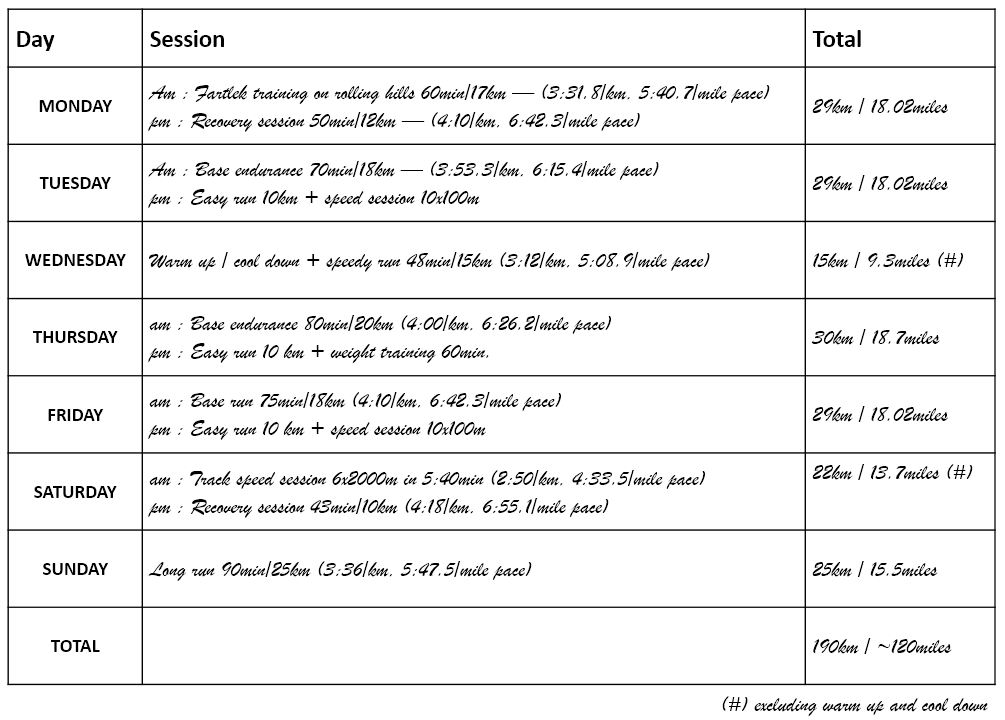
Sonia O’Sullivan was one of the best Irish athlete. She was keeping a monthly record of her session. The format is simple, but the details are very accurate:
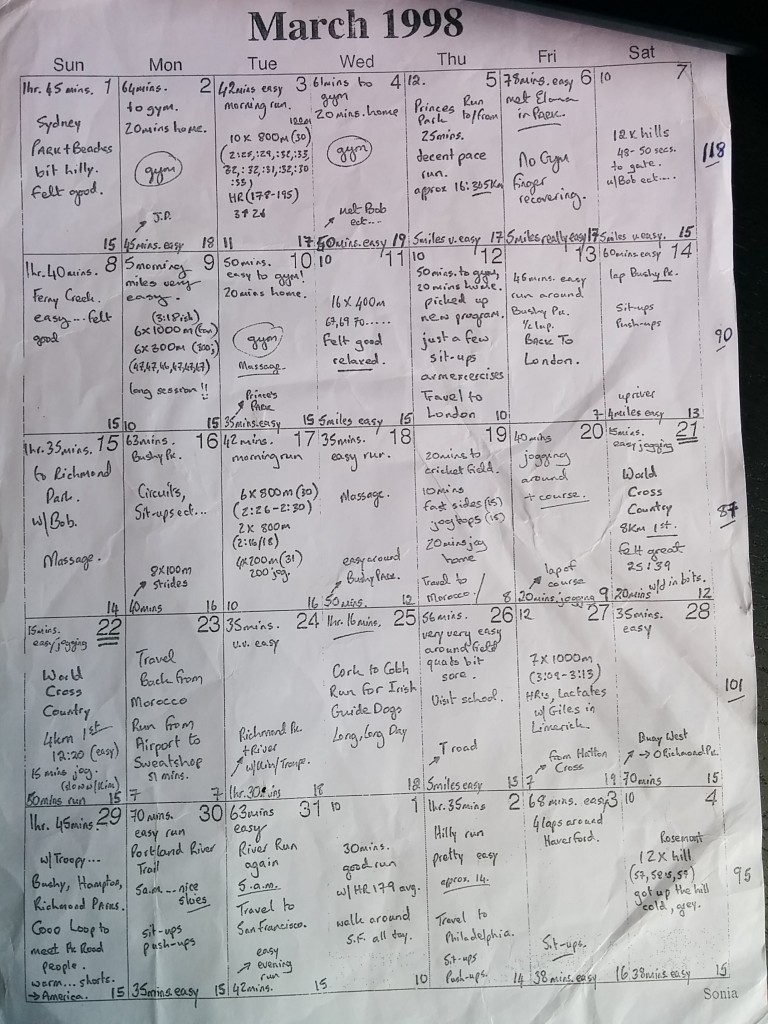
How I keep track of my trainings and races
Personally, I have my training log online on Kikourou and Garmin. It is too much data, then since 2017 I use the excel document I share in the next paragraph. I fill it on my computer, but I appreciate the possibility to write on a piece of paper or a paper diary. For example, few weeks of my running diary:
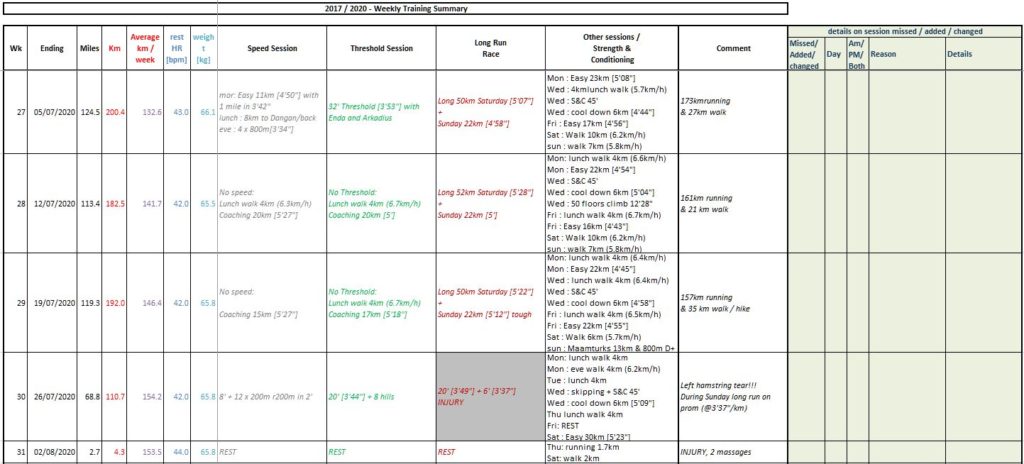
Diary proposal
If you want to use the Marathon Coach Diary, just use this format:



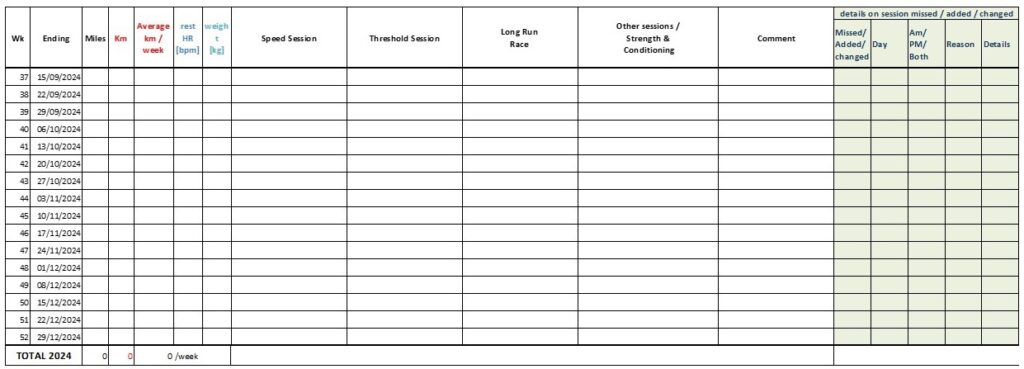
Conclusion
Find the best diary format for your own need. Keep it simple with enough details to ensure you will be able to analyze it at the end of the season, when you get an injury, after a race or even after an Olympic Gold medal!
